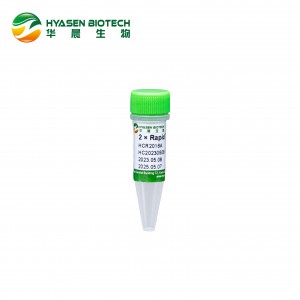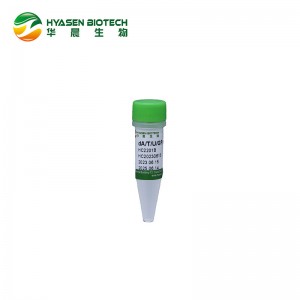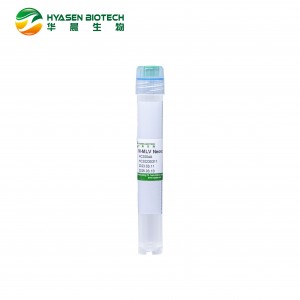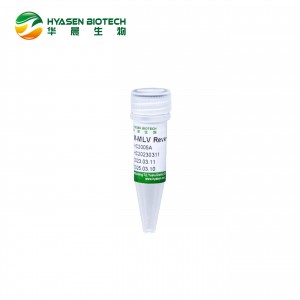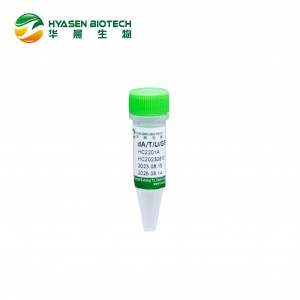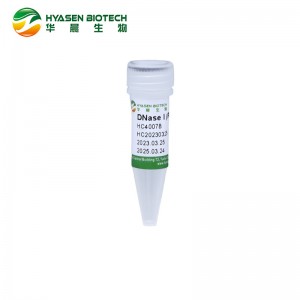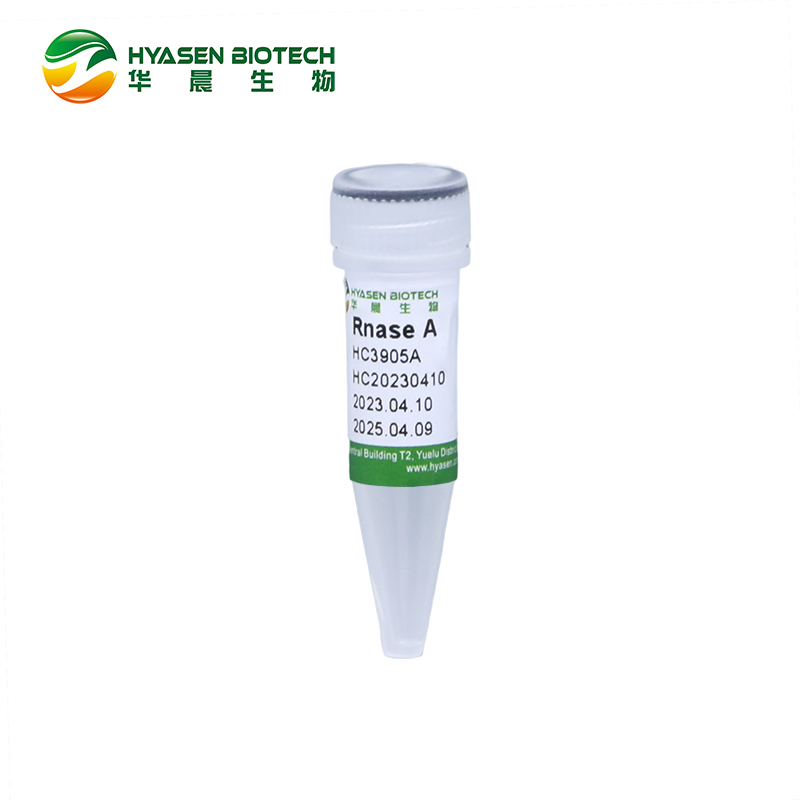
Rnase A
Ribonuclease A (RNaseA) is a single-stranded polypeptide containing 4 disulfide bonds with a molecular weight of about 13.7 kDa. RNase A is an endoribonuclease that specifically degrades single-stranded RNA at C and U residues. Specifically, the cleavage recognizes the phosphodiester bond formed by the 5′-ribose of a nucleotide and the phosphate group on the 3′-ribose of the adjacent pyrimidine nucleotide, so that the 2, 3′-Cyclic phosphates are hydrolyzed to the corresponding 3′nucleoside phosphates (e.g. pG-pG-pC-pA-pG is cleaved by RNase A to generate pG-pG-pCp and A-PG). RNase A is the most active in cleaving single-stranded RNA. Recommended working concentration is 1-100μG/mL, compatible with various reaction systems. Low salt concentration (0-100 mM NaCl) can be used to cut single-stranded RNA, double-stranded RNA, and RNA chains formed by RNA-DNA hybridization. However,at high salt concentration (≥0.3 M), RNase A only specifically cleaves single-stranded RNA.
RNase A is most commonly used to remove RNA during the preparation of plasmid DNA or genomic DNA.Whether or not DNase is active during the preparation process can easily affect the reaction. The traditional method of boiling in a water bath can be used to inactivate DNase activity. This product does not contain DNase and protease, and does not require heat treatment before use. In addition, this product can also be used in molecular biology experiments such as RNase protection analysis and RNA sequence analysis.
Storage Conditions
The product can be stored at -25~-15℃, valid for 2 years.
Instructions
This is one of the common methods for preparing RNase A storage solution. It can also be prepared by other methods according to the traditional methods in the laboratory or reference literature (such as directly dissolving in 10 mM Tris-HCl, pH 7.5 or Tris-NaCl solution)
1. Use 10 mM sodium acetate (pH 5.2) to prepare 10 mg/mL of RNase A storage solution
2. Heating at 100 ℃ for 15 min
3. Cool to room temperature,add 1/10 volume of 1 M Tris-HCl (pH 7.4), adjust its pH to 7.4 (for example,add 500 ml of 10g/ml RNase storage solution 1M Tris-HCL, PH7.4)
4. Sub-packaged at -20℃ for frozen storage, which can be stable for up to 2 years.
[Notes]: When boiling RNaseA solution under neutral conditions, RNase precipitation will form; Boil it at a lower pH, and if there is precipitation, it can be observed, which may be caused by the presence of protein impurities. If sediment is found after boiling,impurities can be removed by high-speed centrifugation (13000rpm), and then sub-packed for freezing storage.
Product information
|
Synonyms |
Ribonuclease I; Pancreatic ribonuclease; Ribonuclease 3’-pyrimidnooligonucleotidohydrolase; Rnase A; Endoribonulcease I |
|
CAS No. |
9001-99-4 |
|
Appearance |
White lyophilized powder |
|
Molecular weight |
~ 13.7kDa (amino acid sequence) |
|
Ph Value |
7.6 (activity range 6-10) |
|
Suitable Temperature |
60℃ (Activity range 15-70℃) |
|
Activating agent |
Na2+. K+ |
|
Inhibitor |
Rnase Inhibitor |
|
Inactivation method |
Cannot inactivated by heating, it is suggested to use centrifuge column |
|
Origin |
Bovine |
|
Solubility |
Soluble in water (10mg/ml) |
|
Loss on dry |
≤5.0% |
|
Enzyme activity |
≥60 Kunitz units/mg |
|
Isoelectric point |
9.6 |
Notes
For your safety and health, please wear lab coats and disposable gloves for operation.






